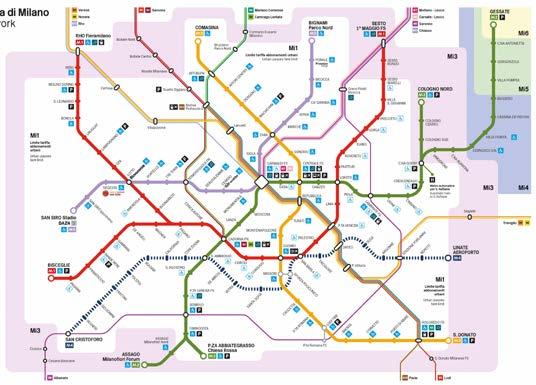
2 minute read
PANORAMA
PORTA NUOVA
AN UPWARD SPIRALING CITY
Advertisement
−Porta Nuova is a sprawling area, the result of a project of urban and architectural redevelopment involving the area that leads from the Porta Garibaldi railway station to Piazza della Repubblica, up to Palazzo Lombardia.
−In 2005, an architectural project curated by American real estate developer Hines focused on transforming the area into a technological hub comprising more than twenty buildings including skyscrapers, offices, cultural centres and urban residences.
−Several of Milan and Italy’s highest and most innovative skyscrapers, including the futuristic CityLife complex (visible in the background), are located in the Porta Nuova district. Among these, the Torre UniCredit –housed in the vibrant Piazza Gae Aulenti -, the Torre Solaria – the highest residential skyscraper in Italy-, the Torre Diamante and the green complex of the Bosco Verticale featuring hanging gardens designed by Stefano Boeri.
−The large public park in the middle of the neighbourhood, known as the BAM Biblioteca degli Alberi, extending over an area of 90,000 sq.m., was designed to provide a vast number of interconnecting pedestrian paths and to create a real botanical library. The park features over 450 trees and 90,000 different plant species, plus recreational areas, themed circular forests, teaching paths and pedestrian and bike paths. In summer, the park is also used to host outdoor concerts and events.
www.portanuova.com - bam.milano.it
THE DUOMO'S TERRACES
OVERLOOKING THE CITY

−After crossing the threshold of its 18th century façade in Candoglia marble, the interior of the Cathedral is revealed in all its majesty. One of the most important Gothic buildings in the world, the church, constructed over a period of 450 years (begun 1386), is the symbol of Milan. Built in the shape of a Latin cross, the cathedral is divided by soaring pillars into five naves, the largest of which measures 45 metres in height.
−The interior boasts an apse with a large rose window, stained glass windows decorated with episodes from the Bible, chapels and high marble columns with capitals featuring statues of saints.
−To experience the Duomo at its most majestic you must ascend to the roof (either by elevator or by steps) where you will be surrounded by an outburst of pinnacles, turrets and marble statuary and, naturally, the city’s famed golden “Madonnina”. Here you can wander among 135 spires and 3,400 statues.
−Guided tours for small groups help visitors learn about the secrets behind the Duomo’s construction. The tour starts from the back of the choir which leads to the Crypt housing the tomb of San Carlo Borromeo, and then moves on to the Archaeological Area where you’ll find the remains of the Battistero di San Giovanni alle Fonti, dating back to 397 A.D. This is where Sant’Ambrogio christened St. Augustine. Next is the old Basilica of Santa Tecla (4th century).
−Before accessing the Cathedral and its treasures, visit the nearby Museo del Duomo, located inside Palazzo Reale. The museum houses more than 150 masterpieces from the 15th century to the present time, including statues, architectural models, plaster casts, terracottas and paintings.








